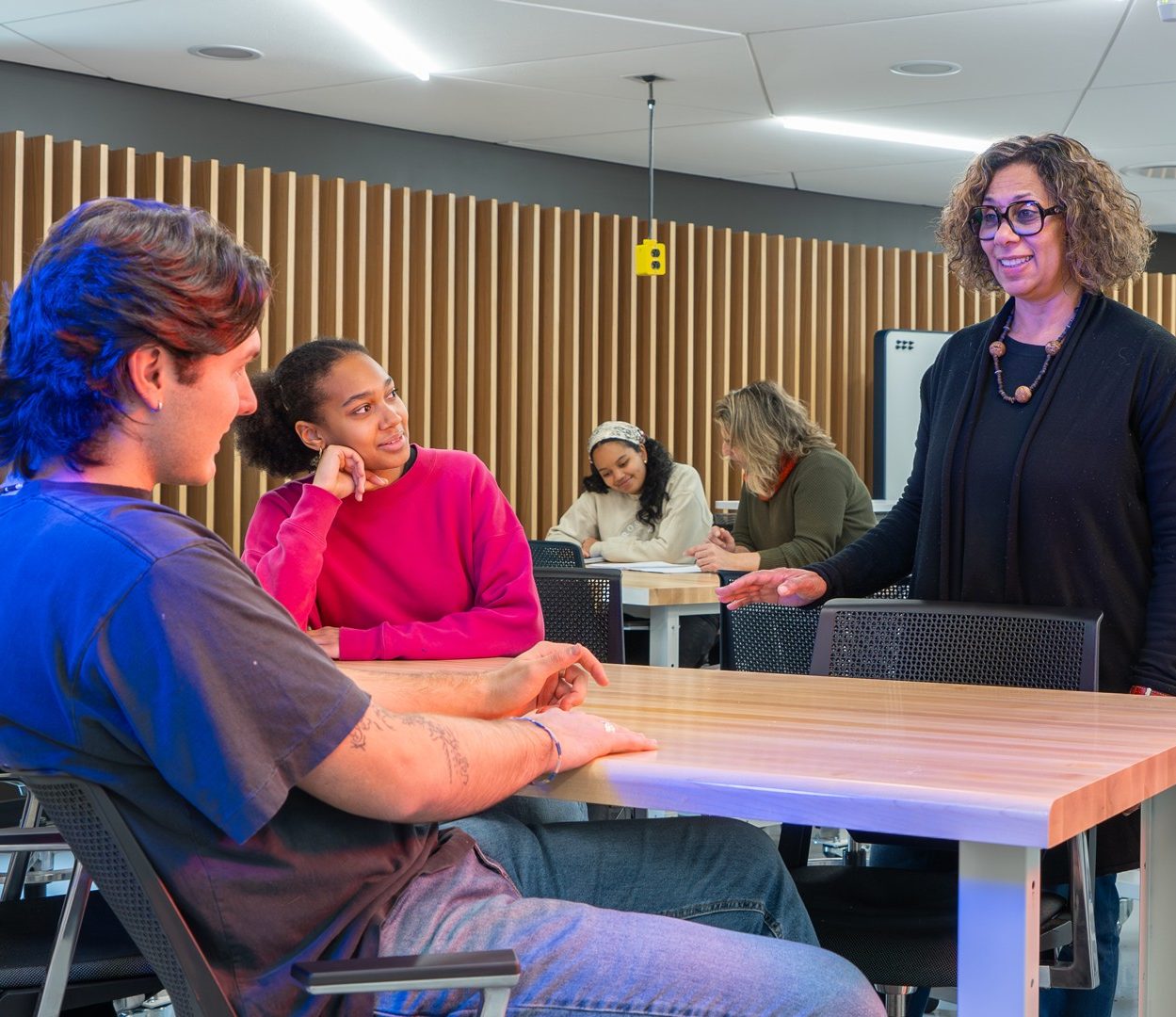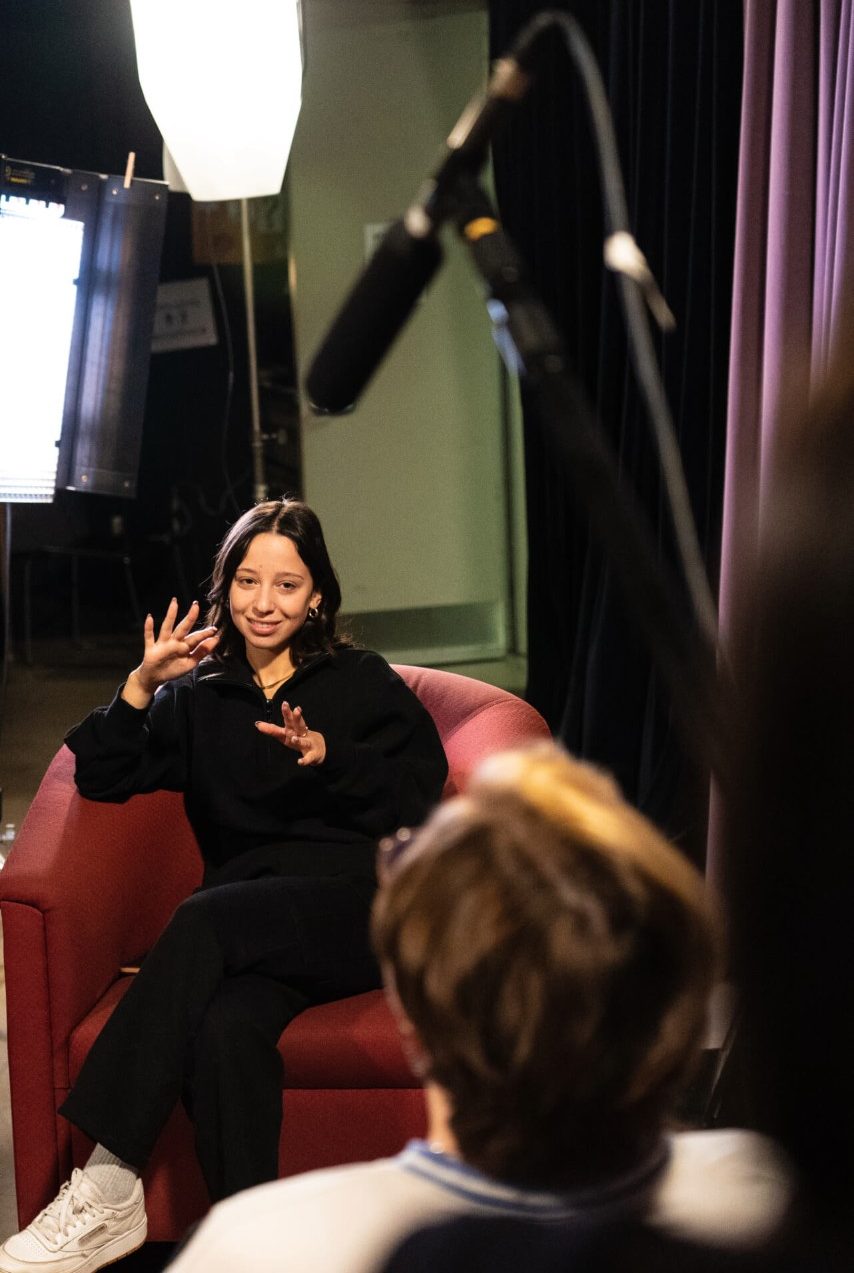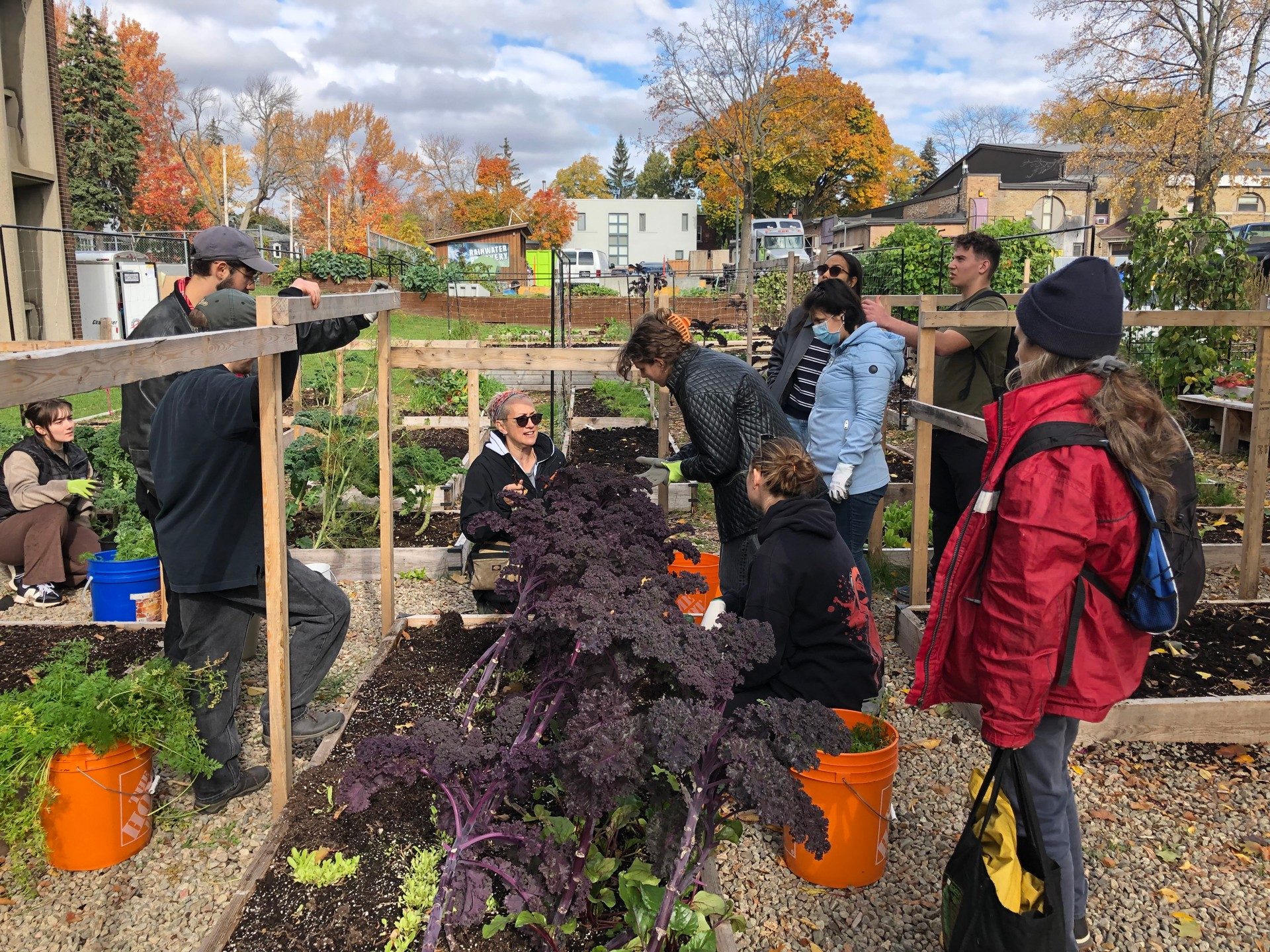Communication
(PhD)
Defining the field with innovative research and creative practice
We are one of the best communication studies doctoral programs in the country, with an international reputation for excellence in research, research-creation and teaching. Our research expertise is profoundly interdisciplinary, traversing the humanities, social sciences, fine arts and the sciences. We encourage students to explore innovative subjects and modes of inquiry.

Our faculty
Our faculty include award-winning scholars, artists and media makers who manage cutting edge research and research-creation labs which bring together faculty, students and community members around timely issues.

Our research areas
Our faculty have extensive and committed track records in graduate supervision. Students in the program gain rigorous training in advanced experimental and interdisciplinary methods of media, communication and cultural analysis. Our research methods focus on qualitative approaches such as historical and discourse analysis, research-creation (including expertise in documentary film, sound, platform interventions, activist media, installation, augmentation and VR), science and technology studies (STS), participant observation, visual ethnography, digital research methods, curatorial research, co-design and community-based research.
Discover our research areas
We carry out and support research that investigates the social, cultural and political impacts of algorithms powering platforms, social media, surveillance technology, supply chains and other key infrastructure. We are interested in feminist, alternative and decolonial AI and we do research creation projects that engage critically with AI and big data. Our research questions address algorithmic bias, data infrastructure and its environmental impact, policy regulation and the ethics of AI, as well as data justice and tech-led gentrification.
Faculty: Stefanie Duguay, Fenwick McKelvey, Alessandra Renzi
We examine the place of sound in everyday life and explore how documentary, VR, or AR shifts our perceptions, policies, or sense of place. We explore listening and sound through remixing workshops, field recording, audio art, sound maps, live performance, podcasts, augmentation, spatialized sound, sampling, electronic composition, dj and vj culture and more. We engage with documentary and expanded media practices such as projection mapping, virtual reality and installation-based cinema.
Faculty: Owen Chapman, Antonia Hernandez, Alessandra Renzi
We undertake media studies and research-creation that engage the material world, nature cultures, ecological systems and histories. We are especially focused on the disproportional impact of environmental violence on BIPOC and other marginalized communities. Our research looks at anthropogenic climate change, science and technologies of the environment, food studies, waste studies, environmental toxicity and ecological media.
Faculty: Arseli Dokumaci, Antonia Hernández, Krista Lynes, Peter Van Wyck
We support projects on questions of representation and ideological structures of mediation from an intersectional feminist perspective. Our expertise lies especially in feminist/queer political movements, experimental media and artistic practice and the social and technological forces that require a gender-based analysis. Critical work intersects with anti-racism, decolonization, disability justice, aging, STS and queer/trans* studies.
Faculty: Krista Lynes, Kim Sawchuk
We examine how games shape and reflect contemporary culture and how the industry has developed into a global influential business. We experiment with the medium of games by making games, by exploring how the form can be advanced and by studying how they are used for social impact, dialogue and more.
Faculty: Mia Consalvo
We explore how media shapes the identities of sexual and gender diverse people over time and space and research how LGBTQIA2S+ people represent themselves through new digital technologies and alternative media forms. We also consider broad questions of gender and sexuality in and through feminist theory, queer theory, trans* studies and other intersectional lenses.
Faculty: Stefanie Duguay, Krista Lynes
We explore how media-activism, co-creation, participatory or community-based media are informed and inspired by social movements, emergent technologies and ethics. We engage with diverse forms of participatory and horizontal mediamaking that include data activism, design justice and pluriversal design. Our research and teaching covers historical as well as contemporary forms of alternative media and media activism.
Faculty: Arseli Dokumaci, Monika Kin Gagnon, Krista Lynes, Alessandra Renzi
We engage with the histories of media industries, technologies and forms (film, television, newspapers, print media, photography, computing) and research the multiple intersections of media studies, media archaeology, cultural history, art history, history of science and technology, history of religion, esotericism and magic, colonial and postcolonial studies, critical race studies and memory studies. The program also supports research and research-creation projects involving archival work and/or the construction of archives.
Faculty: Charles Acland, Fenwick McKelvey, Jeremy Stolow, Peter Van Wyck
Are you ready to submit your application?
- Application form and Fee
- Curriculum Vitae (CV)
- Three Letters of Reference and assessment form
- Transcripts for all post-secondary institutions attended
- Proof of Canadian citizenship (if applicable)
- Applicants whose primary language is not English, are required to submit official language test scores, unless exempted
- Optional support material may include writing samples or links to completed research/creation projects
You also need to submit a statement of purpose (approx. 500 words) with the following:
- your academic and/or professional background, including publications, awards and relevant employment)
- your career goals
- the reasons why you believe Concordia’s PhD in Communication program will offer you the right home for your studies.
- If relevant, please also indicate any scholarships, fellowships or bursaries you have already secured for your PhD studies or for which you intend to apply.
Your application will also need to contain a research statement (approx. 1500-2000 words) with the following:
- a detailed description of the proposed area(s) and program of research
- an appended bibliography (max. 1 page), representing key works in your proposed area of study
Learn more on the letters of reference, assesment form, transcripts and proof of Canadian citizenship required for submitting your application.
Fund your studies

Our students
Our students have a diverse range of research and creative interests, from gender expressions on Tik Tok to thinking critically about “greening” infrastructures to disinformation in games and on streaming platforms. Explore our collection of theses and creative projects from previous years to see what a PhD in Communication can offer you.
Featured Alumni

Sarah Christina Ganzon
"Concordia’s Communications PhD program was such a well-rounded lifechanging experience, offering excellent mentorship in teaching and research as well as lifelong connections that were invaluable to me as both an international student and a communications scholar. The faculty models the kind of mentorship and care that I aim to provide my own students in my current institution."
- Sarah Christina Ganzon, Assistant Professor of Communication Studies at Simon Fraser University (Game Studies and Fandom)

Trish Audette-Longo
Trish Audette-Longo is an assistant professor at Carleton University teaching digital journalism and reporting. Trish’s research interests include: digital, start-up and alternative journalism and media; journalism education; climate change and petroculture studies.

Mél Hogan
"What I remember most is the attention professors brought to thinking through modes of knowledge production and what makes something count as knowledge. I'm currently working on podcasting as a research tool and way to build community -- all influenced by my time at Concordia!"
- Mél Hogan, Associate Professor, Queen's University, Film in Media (data infrastructure, AI, extractivism and the environment)
Learn about the research process
Support our PhD students
Support our unique PhD program that focusses on practice-led research and interdisciplinary training to address the pressing issues of our time such as AI ethics, environmental challenges and structural oppression.
Your support will ensure that our PhD students have opportunities to attend conferences, meet with professionals and identify future employers.
Contact us
Vanessa Pizzichemi, Graduate Program Assistant
Mia Consalvo, PhD Director

